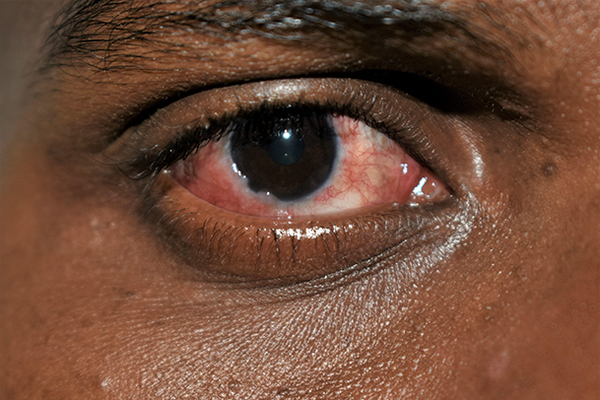
Audio By Carbonatix
Appropriate antibiotics for treating eye infections are crucial, especially now that Antimicrobial Resistance has made a considerable incursion in the bacteria treatment space.
In Ghana, the treatment of eye infections among eye doctors is based on signs and symptoms without an adequate idea about the exact germs causing them.
Therefore, there was the need to find the actual bacteria implicated in the various eye infections in persons reporting to eye hospitals for treatment.
Globally, eye infections caused by bacteria are one of the causes of blindness, and the bacteria which causes these infections vary across regions and populations.
A joint study by researchers from the Kwame Nkrumah University of Science and Technology, Kumasi, and the University of Ghana, Legon, has identified two bacteria commonly causing eye infections in Ghana.
For this study, eye swabs from 114 patients reporting to three eye clinics with various conditions were analysed.
"We employed state-of-the-art microbial techniques to isolate and characterize the organisms," Co-author, Dr. Linda Aurelia Ofori of the Department of Theoretical and Applied Biology, KNUST, explained.
The bacteria Pseudomonas aeruginosa and Staphylococcus aureus were found to be the main germs that cause patients to seek treatments for eye infections in eye clinics.
The lead researcher, Dr. Isaiah Osei Duah Junior, found over 38% of the samples contained Pseudomonas aeruginosa and 27 % Staphylococcus aureus.
Interestingly, the main antibiotics, Polymyxin B, Neomycin, and Ciprofloxacin prescribed by clinicians for the treatment of these infections, proved effective in a laboratory experiment.
"The doctors' usage of Polymyxin B, Neomycin, and Ciprofloxacin antibiotics in treating these infections are supported by our laboratory evidence," Dr. Osei Duah Junior said.
However, the higher burden of eye infections (95%) found in this population calls for immediate attention in laying down policies on the measures to prevent the occurrence of resistant bacteria strains.
Head of Optometry and Visual Science Department, KNUST, Dr. Kwadwo Owusu Akuffo, is hopeful the findings will inform the correct antibiotics used in treating eye infections in the country.
"With this project, we hope to better inform and improve clinicians' practice in the area of eye infection management," he said.
The scientists hope to explore the use of Ghanaian medicinal plants on these identified bacteria. The findings of this work were featured in the Association for Research in Vision and Ophthalmology (ARVO) 2022 Annual meeting in Denver, Colorado, USA (see link: https://www.arvo.org/About/press-room/press-room/Filling-the-gap-with-newfound-techniques/). ARVO is one of the most prominent Eye Care and Vision Science societies in the world.
Latest Stories
-
Ghana’s global image boosted by our world-acclaimed reset agenda – Mahama
7 minutes -
Full text: Mahama’s New Year message to the nation
8 minutes -
The foundation is laid; now we accelerate and expand in 2026 – Mahama
27 minutes -
There is no NPP, CPP nor NDC Ghana, only one Ghana – Mahama
29 minutes -
Eduwatch praises education financing gains but warns delays, teacher gaps could derail reforms
43 minutes -
Kusaal Wikimedians take local language online in 14-day digital campaign
1 hour -
Stop interfering in each other’s roles – Bole-Bamboi MP appeals to traditional rulers for peace
2 hours -
Playback: President Mahama addressed the nation in New Year message
2 hours -
Industrial and Commercial Workers’ Union call for strong work ethics, economic participation in 2026 new year message
4 hours -
Crossover Joy: Churches in Ghana welcome 2026 with fire and faith
4 hours -
Traffic chaos on Accra–Kumasi Highway leaves hundreds stranded as diversions gridlock
4 hours -
Luv FM Family Party in the Park: Hundreds of families flock to Luv FM family party as more join the queue in excitement
4 hours -
Failure to resolve galamsey menace could send gov’t to opposition – Dr Asah-Asante warns
4 hours -
Leadership Lunch & Learn December edition empowers women leaders with practical insights
5 hours -
12 of the best TV shows to watch this January
5 hours

